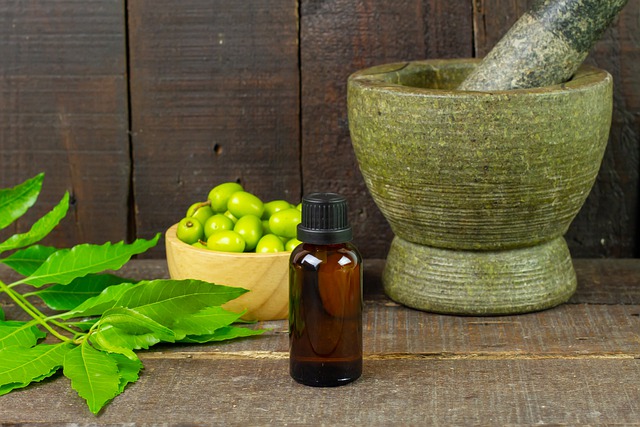Ayurveda is an ancient Indian medical system that has been practiced from time immemorial. The ancient restorative therapy is beneficial for a variety of disorders and conditions, including skincare, menstruation, and improved metabolism. It seeks to promote wellness and health by balancing the psychology, body, and spirit and preventing disease rather than treating it.
When taken appropriately, the majority of Ayurvedic herbal products have little or no negative effects, making them safe to use in old age. Additionally, Ayurveda may be linked with other medical systems to address complicated illnesses and/or avoid or minimize adverse consequences.
Some Essential Ayurvedic Herbs and their Advantages
-
Brahmi
Brahmi is a classic Ayurvedic herb that has traditionally been used to treat neurological illnesses. However, it also has several anti-aging effects and aids in the treatment of epilepsy, anxiety, and stomach issues. It enhances memory and acts as a general tonic in times of stress. Brahmi leaves are regarded to be very pure and effective since they function to increase memory, focus, and intellect while also reducing stress and depression by restraining symptoms such as hyperactivity and impulsiveness. Additionally, it functions as an excellent antioxidant and aids in the battle against cancer-producing cells.
-
Aloe Vera
Aloe Vera is useful for blood purification and toxin removal, as well as has anti-aging qualities. Aloe vera relieves heat-related headaches, and its cooling characteristics make it an excellent treatment for burns, including sunburns, inadvertent human-made skin burns, and those generated naturally by internal skin overheating. Aloe vera is also an excellent moisturizing and hydrating agent for the head, skin, and body, depending on how it is consumed. Additionally, it has purgative (or laxative) qualities, which benefit persons who suffer from constipation by promoting healthy bowel movements.
-
Turmeric
Turmeric is an Ayurvedic spice that imparts a yellow color to curry. Curcumin, the primary component, may aid in the reduction of inflammation and the improvement of heart and brain health. Turmeric may help guard against heart disease in the same way as exercise or some pharmaceutical medicines do by boosting blood flow. Additionally, turmeric components may aid in the preservation of brain function by raising brain levels of brain-derived neurotrophic factor (BDNF). Low BDNF levels have been associated with illnesses such as Alzheimer’s and depression.
-
Ajwain
Ajwain is an excellent digestive and nerve stimulant. It works as a weight-loss spice by pulling out deeply rooted poisons from the body. Additionally, ajwain soothes painful joints – it is an excellent spice for emphysema, dry skin, arthritis, and pneumonia.
-
Ashwagandha
Ashwagandha is a tiny, woody-stemmed shrub native to India and North Africa. It is classified as an adaptogen, which means that it is believed to help your body manage and heal from stress more effectively. Numerous studies have revealed that it decreases cortisol levels, a hormone produced by your adrenal glands during stress and anxiety. Ashwagandha boosts the immune system, increases learning and memory, helps men maintain regular testosterone levels, and helps our hearts stay healthy.
-
Triphala
Triphala is a traditional Ayurvedic treatment made out of three Ayurvedic spices: amla, bibhitaki, and haritaki. Its Ayurvedic herbal products may aid in the reduction of joint inflammation, the improvement of digestion, and the promotion of dental health. Additionally, it may act as a natural laxative, alleviating constipation, stomach discomfort, and gas while increasing the regularity and consistency of bowel motions in those who have gut diseases.
-
Cumin
Cumin is a spice with origins in Asia, Africa, and Europe. It benefits the stomach’s structure and digestion. It aids the body’s uptake of supplements. Cumin may be beneficial for new moms after conception since it cleanses the reproductive organs and increases nursing effectiveness.
-
Bitter Melon
Bitter melon is an Ayurvedic spice that may aid in blood sugar control and insulin secretion stimulation. According to research, bitter melon may help reduce blood sugar levels and increase insulin release, the hormone responsible for maintaining blood sugar levels. It is a mainstay in Asian cuisine and is high in minerals and antioxidants. Additionally, it may help lower LDL (bad) cholesterol levels, however additional study is necessary before conclusive conclusions can be drawn.
Takeaway
Ayurvedic remedies have been used to treat a variety of diseases, including those that were previously considered incurable by other medical disciplines. These Ayurvedic herbal products are organic are contain no chemicals which assures that you would have no side effects on your skin or organ. These herbal treatments have the power to maintain mental and spiritual balance; thus, include Ayurveda herbs thoughtfully into your lifestyle and see their life-altering benefits.





